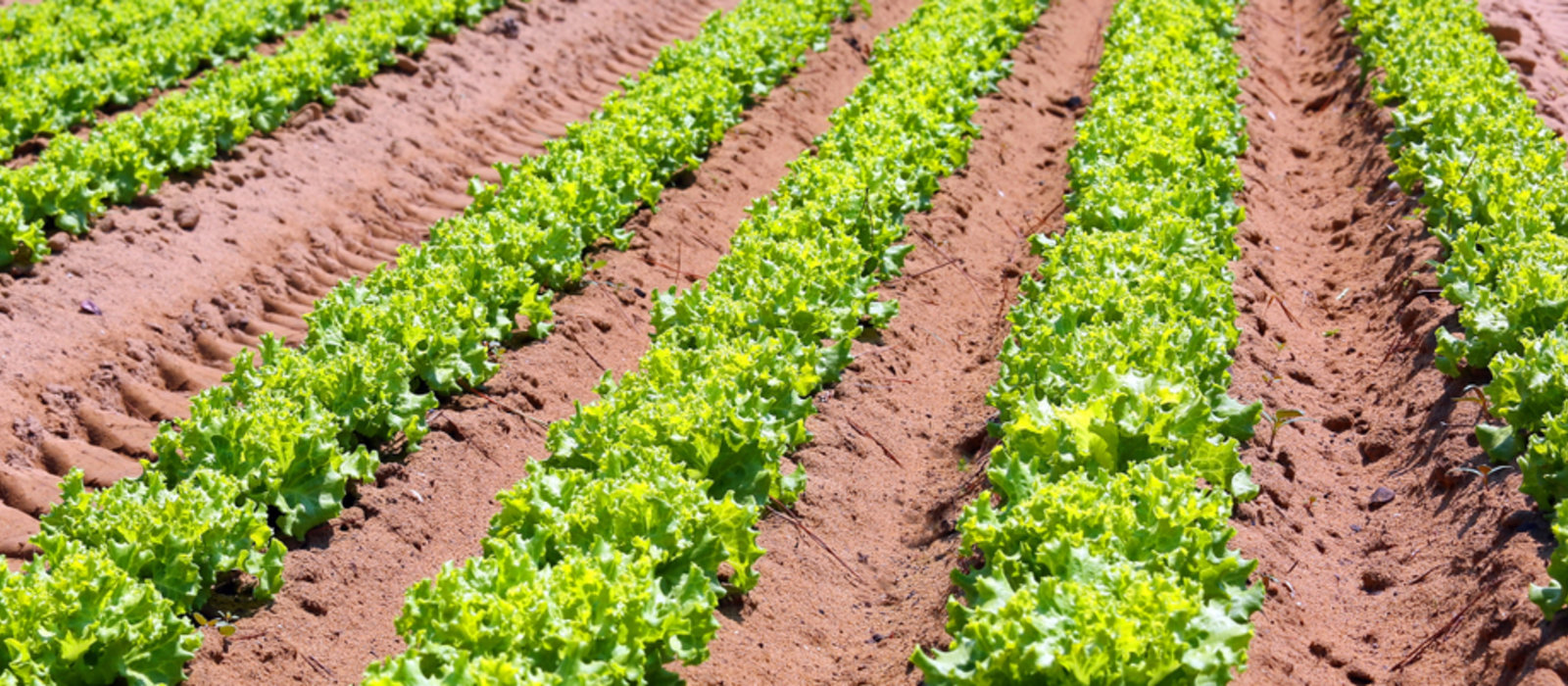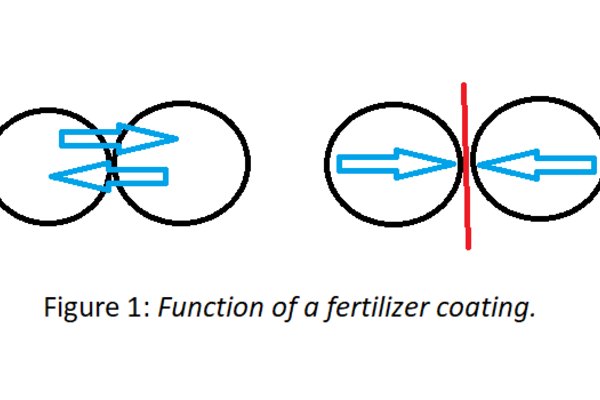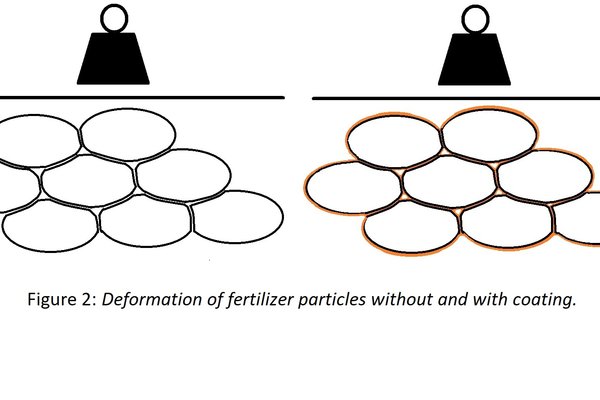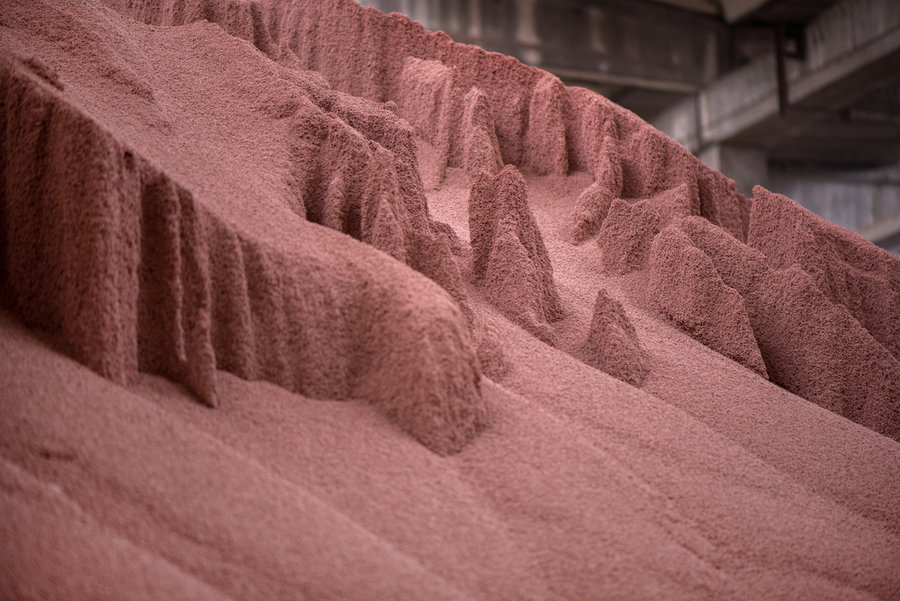Granulation additives
Nearly every fertilizer which is stored and handled in bulk is prone to caking. Everybody active in the fertilizer business has seen examples of massive lumps. One of the causes of caking is that salt bridges between the fertilizer particles are being formed due to humidity cycles or migration of moisture present internally in the fertilizer. This can be solved by using coatings, talcum powder or other additive that form a protective layer around the particles and thus reduce the interaction between particles (Figure 1). A good anticaking treatment should minimally give 90+% caking reduction compared to untreated fertilizer.
The particles of some fertilizer types (especially NPK’s and ASN’s) have the tendency to deform, even with a very low moisture content. Deformation of the granules under pressure will increase their contact surface area (and possibly rupture an applied coating) with their neighbours causing severe caking (Figure 2). The caking tendency of the fertilizer will become that much higher that even the performance of a good anticaking coating will not give enough relief to bring the resulting caking tendency to a level that the fertilizer can straightforwardly be stored in bulk.
In this case a fertilizer producer will have to use a lot of anticaking coating. An alternative could be the use of a granulation additive that inhibits the tendency of the fertilizer to deform, thus giving a product that will be easier to handle and that will require no - or a far lower dosage of - anticaking coating.
Interested in Bio-based/ biodegradable granulation additives? Please visit our BIO-Force information page.




